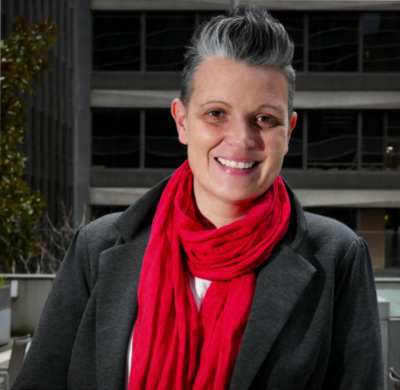Measuring What Matters is a good first step
Posted on 24 Jul 2023
By Jen Rilely, chief impact officer, SmartyGrants
SmartyGrants chief impact officer Jen Riley has welcomed the release of the Commonwealth Government's Measuring What Matters report, but says more work needs to be done.

We are excited about the recent release of the Commonwealth Government’s Measuring What Matters report and its comprehensive list of areas, indicators, and metrics.
This marks a significant step forward for our nation, as the report consolidates the diverse opinions of Australians regarding progress. By identifying the crucial aspects that matter most to us, such as health, security, sustainability, social cohesion, and prosperity, we can revolutionise the way billions of dollars are invested in social change and development.
The impact of investments has been a persistent question for hundreds of grantmakers who have approached SmartyGrants. With the advent of this National Framework, which is built upon extensive consultations, we now possess a common foundation that can be shared with grantmakers across the country. The framework provides a structured set of areas, indicators, and metrics, providing the backbone for more meaningful conversations with communities.

One aspect that appears to be lacking in the report is the availability of indicators relevant at the program level. While the current metrics are suitable for tracking the nation as a whole over extended periods, they might not be ideal for evaluating shorter-term projects, typically lasting 12 to 36 months, that target specific cohorts in specific locations – and that, when taken together, contribute to those population-level shifts. Although some of the 50 indicators can be applied to projects, such as the self-reported measure of how workers perceive their job, others, like the long-term unemployment rate, are less adaptable.
It is essential for funders to have access to metrics that can effectively gauge the outcomes of funded projects, allowing for adjustments and improvements as needed.
We think it’s important, and it’s why SmartyGrants launched the Outcomes Engine last year to enable standard outcomes measurement across grant portfolios. While those measures can be standardised within an organisation, they often don’t work across organisations. That’s something that Measuring What Matters could help deliver.
While we could undertake the task of translating the 50 metrics into project-level indicators individually, this approach, if taken up by all of us, could lead to a plethora of unstandardised metrics (our current status quo), hampering data aggregation and comparison of results across projects.
To address this concern, we propose that all the metrics within the Framework be transformed into short-to-medium-term outcomes and measures that can be applied consistently across projects. By doing so, we can avoid redundancy and maintain the ability to analyse and learn from data trends across various initiatives. Standardising the metrics would significantly benefit the sector and improve our collective understanding of what truly works in achieving positive change.
The Measuring What Matters report is a valuable contribution to the nation. We commend the effort to identify essential areas of progress and establish a common framework. To maximise the impact of this initiative, we urge the incorporation of program-level indicators that can be consistently used and compared across projects. By doing this, we can collectively strive for more effective and impactful social change across Australia.